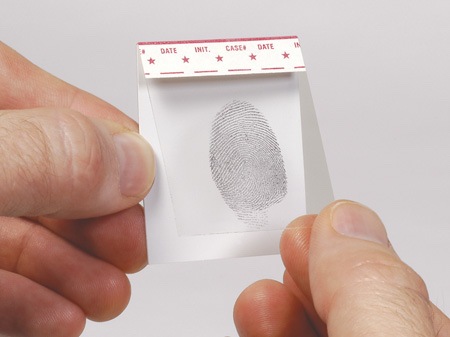Property crimes take up a huge portion of a patrol officer’s day. First, there’s the initial response, making sure the suspect isn’t still on the scene (or arresting the dummy if he is).
Then comes the report, questioning the witnesses, and sometimes having to stand there while people belittle the officer with snide remarks, often made quite loudly and rudely, even before they’ve had the time to remove the ink pen from their shirt pocket to begin note-taking. Starting with the standard—“I pay your salary.”
Next comes a crowd favorite that seemly plays on an endless loop.
- “Where were you while my house was being robbed?”
Houses aren’t robbed, by the way. Only people can be robbed. So please do make note of the following.
- A burglary is normally defined as the breaking and entering into a building, (usually during the nighttime) for the purpose of committing a crime, such as larceny. A robbery is the taking of property from one person by another, by violence, force, and/or intimidation, such as being held up at gunpoint.

ROBBERIES REQUIRE A FACE-TO-FACE TAKING OF PROPERTY FROM ONE PERSON BY ANOTHER, BY FORCE, THREAT, OR INTIMIDATION.
And on it goes. On and on. Those lovely little comments that are often shouted while you’re trying to help the victims property crimes, and others.
2. “If you’d spend more time on the street instead eating doughnuts all day then this wouldn’t have happened.”
3. “Aren’t you going to take fingerprints? They take them on CSI shows. I seen ’em do it.”
Okay, first, the doughnut thing is really, really old and tired, folks. Most present day officers eat well, exercise, and enjoy fruit or other healthy snacks. Many departments conduct regular health assessments and require physical fitness testing. So it’s probably a good idea to move on to something more modern or risk having your material appear dated.

Next, where is it that officers should “take fingerprints? Home, back to the office, on a date? Fingerprints are lifted, processed, developed, etc., and then those pieces of evidence are “taken” back to the department where they’re then sent to the experts for comparison.
4. “Why don’t you do your job instead of sitting in your car waiting for speeders. Can’t you find real criminals?”
FYI – Speeders are indeed law-breakers since driving above the posted speed limit is illegal. Many departments assign a group of officers to work traffic details, such as speed limit enforcement(running radar). This means that other officers are assigned to duties such as responding to criminal complaint cases.
5. “I’ll have your badge for this.”
6. “I play golf with the chief, you know. And he’s going to hear about this.”
7. “Find some DNA.”
8. “There ain’t no Mickey Mouse crap like this on CSI. No, sir. Not on COPS, neither”
And that, my friends, is what police officers all across country experience every day, day-in and day-out. But wait, it gets better.
Next comes the actual evidence collection. Now, keep in mind that this is a residence where people come and go all the time. And they touch things. In fact, they touch EVERYTHING. So what does that mean? Yep, there are fingerprints on nearly every single item in the house.
Contrary to the top-notch experts on fictional TV shows, officers cannot tell which of those prints belong to a bad guy merely by looking at them. No one can. In fact, chances are, the burglar’s (not robber’s) prints are not on file anyway.
Please keep in mind that in order to locate a suspect using fingerprints found at a crime scene, a copy of the suspect’s fingerprints must be stored within a database used by police, such as a department’s database or the national database maintained by the FBI.
Officers know deep down in their hearts that in spite of taking the time, sometime for several hours, to process, develop, and collect a bunch loops and whorls taped to evidence cards, well, they’ll soon learn that the fingerprints they’ve spent the better part of a morning or afternoon to collect are probably of absolutely no value whatsoever. But they do it anyway … time and time again. Over and over and over. Why? Because residents demand it. Sometimes, though, you do get lucky and get a match.
So, if fingerprints aren’t the number one way to catch a burglar, what is? Well, there’s no one answer to the question. Actually, solving a property crime, such as B&E, involves a lot of steps. And the sum of those steps equals “good police work.”
Solving Property Crimes
So what are some of the things officers should do to solve property crimes?
- Responding officers should always document the scene as they found it, not after everyone has walked through and fumbled with each item they pass.
- Question all witnesses.
- Check for points of entry and exit. Are there toolmarks? Are those tools still on the scene?
- Is there broken glass? Blood on the glass (DNA?).
- Footprints outside? (or, in the carpet or on the tile flooring)
- Lights on or off? (suspect may have touched the switches)
- Glasses on the kitchen counter? (suspects sometimes help themselves to food and drink)
- Check the wall behind the toilet for fingerprints. Sometimes male criminals use the restroom at the scene and while doing so they place a hand on the hall.
- Likewise, the underside of a toilet seat is another likely spot to find prints. Unless, of course, the burglar is totally uncouth and doesn’t lift the seat.
- Look for the “evidence trail.” Offenders sometimes drop things during their exit. It’s not unusual to follow a trail of dropped evidence and then find the suspect sitting at the other end (not like a trail of breadcrumbs, but close).
- Were there serial numbers on the missing items, and were they recorded?
ALWAYS recored the serial numbers of your valuable items. This is handy for insurance claims. Even when using a moving company to relate, it’s a must to record serial numbers in the event they, and they do, lose items.
- Who would benefit from this crime? A real thief (drug addict, perhaps), or someone who desperately needs to collect some insurance money?
- Have similar crimes occurred? If so, where and how close to this scene? Talk to other officers. Compare notes.
- Talk to informants and street people. They know a lot and they often enjoy spilling the beans, especially if telling what they know earns them a few dollars.
- Check all pawn shops and drug dealers who’re known to take property in exchange for “goods.” Sometimes they’ll hand over stolen property to get the cops off their backs. After all, it’s bad for business to have police officers hanging around their turf.
In some areas, pawn shops are required to submit a daily list (to the police) of each item purchased.
- When officers finally do make an arrest, and they usually do, they should always ask the offender about other crimes in the area. Sometimes, officers solve several cases by merely asking a simple question or two.
And then there’s the number one tactic … common sense. Using it goes a long way toward solving a case. It’s also a great tool to use when writing cops.
So, if you’re writing a scene where your cop protagonist does something that doesn’t exactly seem right, or, if your common sense tells you it’s wrong, then I’d suggest doing this …
MurderCon registration is still open. Please do yourself and your readers a huge favor by attending this fantastic and rare opportunity. There’s never been anything like and there may never be again.




